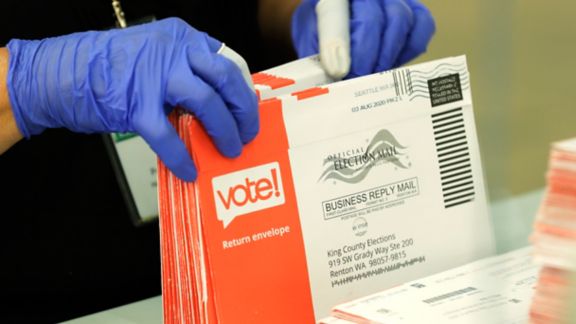$348 Billion: The Hidden Cost of Mass Incarceration on American Families

This article is from our NORC Now newsletter. Subscribe today.
August 2025
NORC’s nationally representative survey of 1,604 families for FWD.us provides policymakers with critical data on incarceration’s economic impact.
A first-of-its-kind nationally representative survey of families affected by incarceration has revealed that mass incarceration costs U.S. families $348 billion annually. The mixed-mode survey, conducted using NORC’s AmeriSpeak® Panel in collaboration with Duke University and funded by FWD.us, found that families spend an average of $4,195 annually per incarcerated loved one.
Twenty-one percent of adults in the United States had recent experience supporting an incarcerated loved one financially.
NORC collaborated with Duke researchers to develop and implement the survey of 1,604 adults with immediate family members—a parent, sibling, child, grandchild, spouse, or co-parent—currently or recently incarcerated for at least three months.
We first screened the AmeriSpeak Panel for adults who had an immediate family member incarcerated for at least three months since 2016 and found that approximately 20 percent of respondents qualified—a rate significantly higher than expected. The high qualification rate underscored AmeriSpeak’s accuracy in reflecting the U.S. population and allowed us to look at specific subgroups of the population.
“We realized that there are a lot more people with this experience than we thought,” said Dan Malato, senior research director for Public Affairs & Media Research, who served as project manager on the survey. “This allowed us to capture more stories and provide the public with a greater understanding of the range of experiences faced by those with an incarcerated family member.”
Gathering accurate data required cultural awareness and methodological rigor.
NORC worked with Duke researchers to design a precise screening instrument to identify the right population and conducted the survey in English and Spanish via web and phone. The careful survey design also helped them account for COVID-19 pandemic restrictions that affected visitation and families’ support during part of the study period.
NORC developed an innovative approach to gather comprehensive data while minimizing the burden on respondents, many of whom had more than one family member who met the study criteria.
“We asked about one family member in detail, then gave respondents the option to tell us about the next family member,” Malato said. “We provided a small incentive to continue but also gave them the option to decline since we knew it could be a mentally and emotionally taxing survey.”
Annual incarceration costs vary widely across racial and ethnic groups.
We found that families in the United States spend an average of $4,195 annually per incarcerated loved one. White respondents reported that their families spend an average of $3,251 annually, while Black respondents reported spending more than double that average—over $8,000 a year. We found that Black families were more likely to have multiple family members incarcerated at the same time and more likely to contribute to and stay in touch with their family members who are in prison.
NORC also fielded an oversample of Native American respondents, revealing that they face high costs—over $6,000 annually, particularly for child care support.
The study also estimated $326 billion in lost earnings due to incarceration’s long-term impacts—costs that had never been systematically documented at a national level.
Several respondents from the AmeriSpeak Panel were featured in a video about their experiences.
In more in-depth interviews, the respondents shared their families’ stories of navigating the financial burdens of supporting incarcerated loved ones. “The range of different stories from the interviews our funder, FWD.us, did to go with the survey findings really stuck with me,” said Malato. “They are very powerful, and they provide more texture to the survey. Their stories go beyond just what we found in the headline numbers.”
The research is already informing national conversations about economic and criminal justice reform and was featured in an NPR story.
"The findings highlight the tremendous financial burden that’s faced by those with a family member in jail or in prison, but it really shows the range of ways families feel that impact,” Malato said. “This is a cost-of-living issue in a simple form for a lot of people, and one with lasting effects that ripple through generations.”
This article is from our flagship newsletter, NORC Now. NORC Now keeps you informed of the full breadth of NORC’s work, the questions we help our clients answer, and the issues we help them address.








